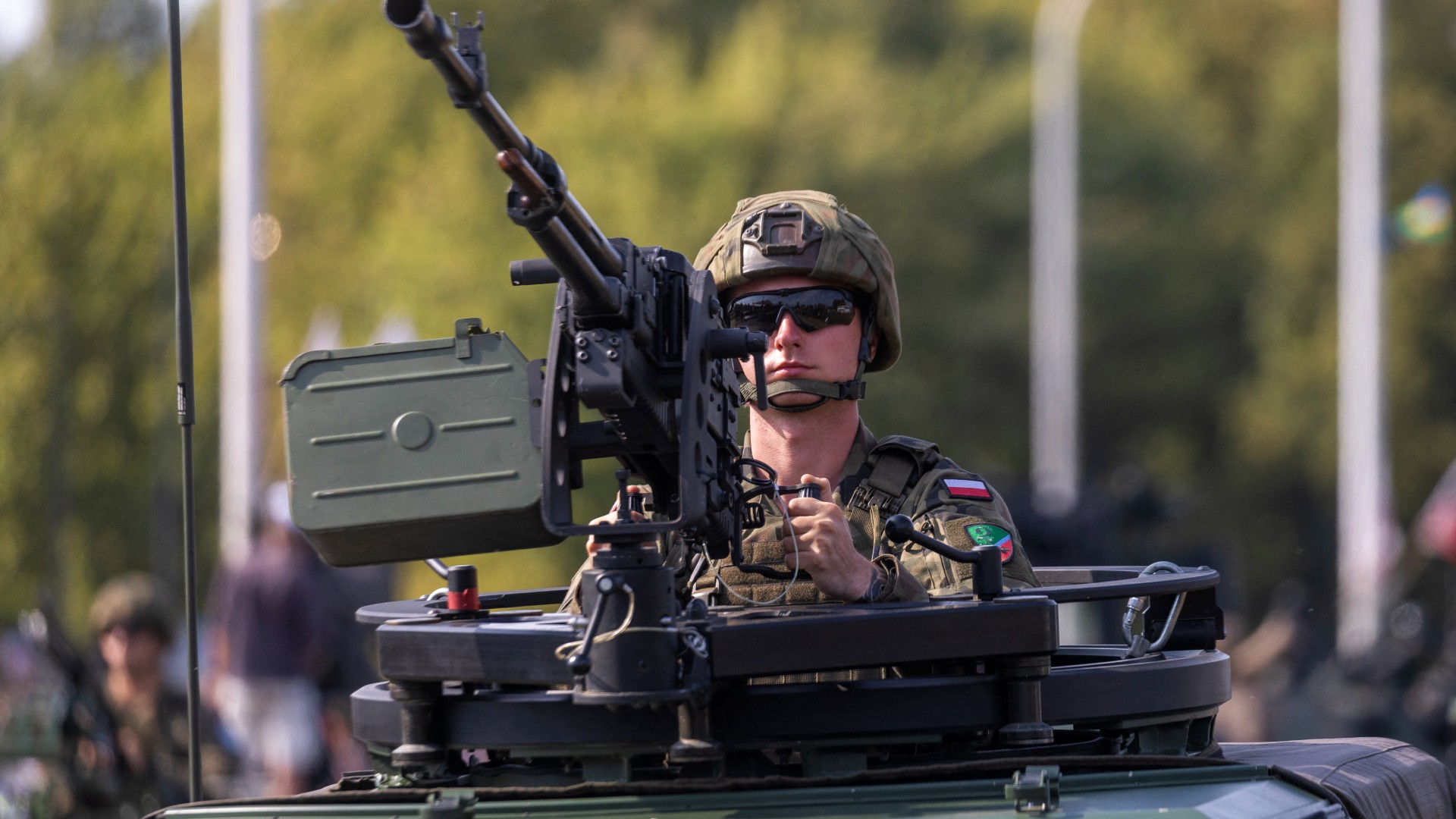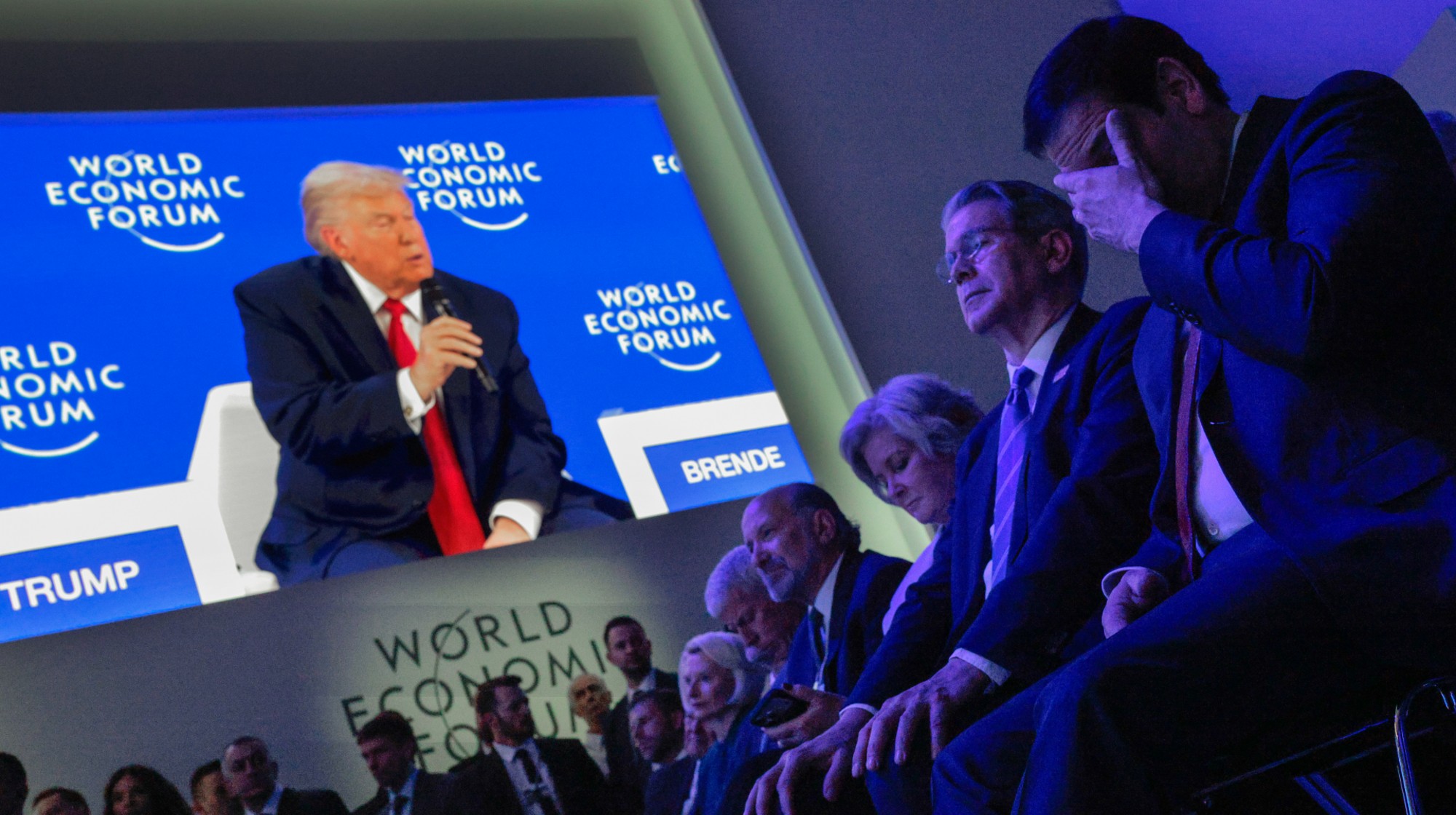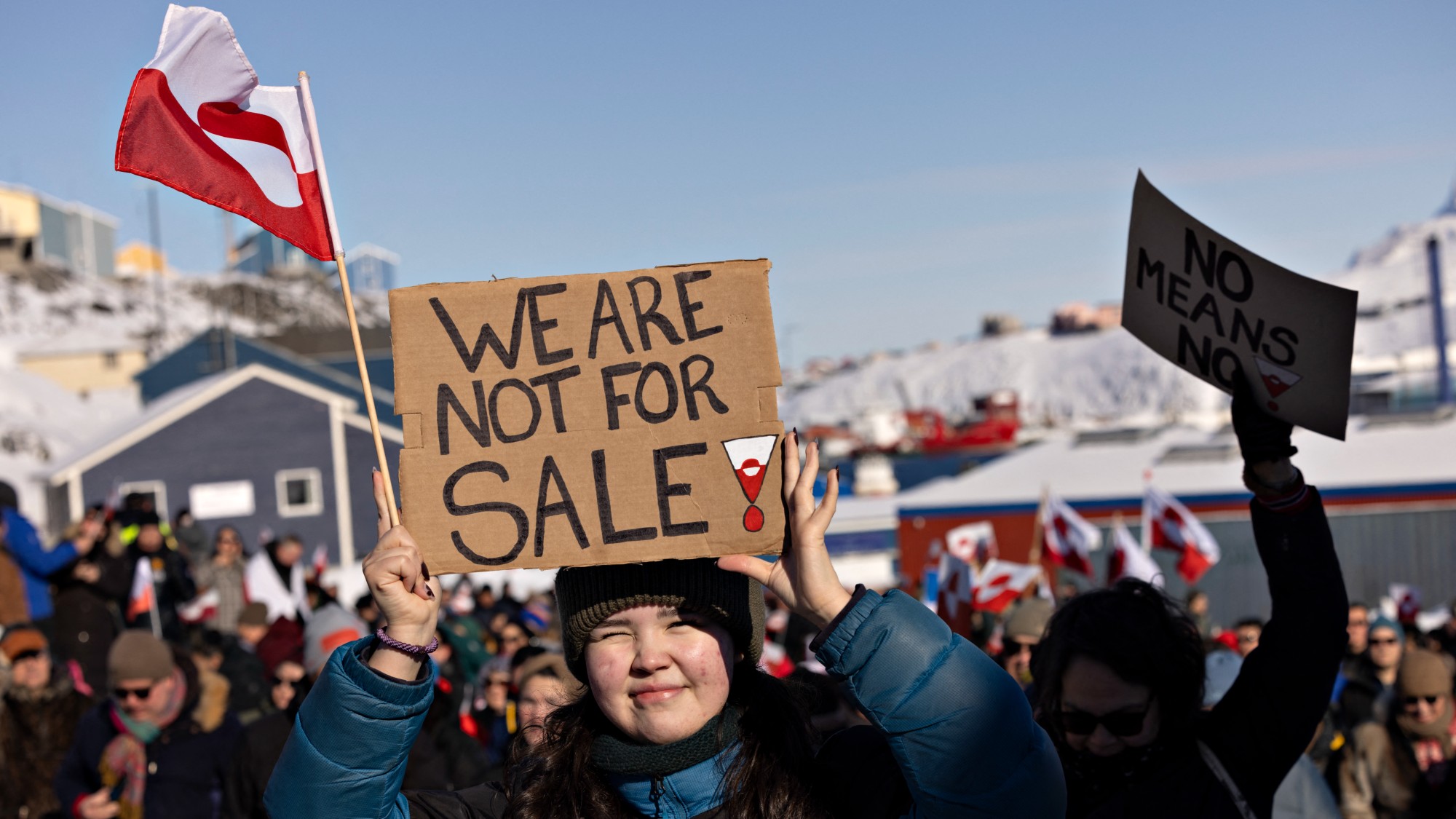How Poland became Europe's military power
Warsaw has dramatically increased its defence spending as it looks to protect its borders and stay close to the US

A free daily email with the biggest news stories of the day – and the best features from TheWeek.com
You are now subscribed
Your newsletter sign-up was successful
"Centuries" after it was last one of the world's great powers, Poland's "winged hussars are back", said The Economist. And not just back, said The Parliament, reporting on the country celebrating last year's Armed Forces Day with a display that said "its military is better trained and equipped than at any other time in the country's history".
Over the last few years, Poland has become one of the key military players in Nato, allocating 4.12% of its GDP to defence in 2024 – twice the organisation's target and more than the US. It aims to boost that to 4.7% this year.
In addition, it has grown its armed forces from being the ninth-biggest in Nato in 2014 to third today, doubling the number of personnel and tripling its spending in real terms to $35 billion. Out of its European allies, only Britain, France and Germany spend more.
The Week
Escape your echo chamber. Get the facts behind the news, plus analysis from multiple perspectives.

Sign up for The Week's Free Newsletters
From our morning news briefing to a weekly Good News Newsletter, get the best of The Week delivered directly to your inbox.
From our morning news briefing to a weekly Good News Newsletter, get the best of The Week delivered directly to your inbox.
Add in strong economic growth and "Poland is poised to become a key player in Europe", said Alexandre Massaux on The Conversation.
How is Poland growing its military strength?
Since the introduction of the Homeland Defence Act in 2022, Warsaw has bought "hundreds" of tanks, howitzers and rocket systems, said The Economist. "Pride of place" was an estimated $60 billion worth of equipment bought from the US, including 96 helicopters and the revolutionary Integrated Battle Command System, which allows different types of radars, missile launchers and defence systems to work together.
Polish Prime Minister Donald Tusk aims to go further and is building an "East Shield" to protect its eastern border. Scheduled to be completed and operational by 2028, it features anti-tank fortifications and physical barriers to defend the frontier and control movement.
In addition, the country last year joined the European Sky Shield Initiative, a plan to create advanced air defence systems across the continent to deliver a united response against aggression. Tusk likened the project to Israel's "Iron Dome" and said events in the Middle East had shown how "essential" such systems were, said The Telegraph.
A free daily email with the biggest news stories of the day – and the best features from TheWeek.com
Military personnel numbers have also grown since Russia's annexation of Crimea in 2014, especially in the last few years. From around 99,000 a decade ago, they hit 116,200 in 2020 before jumping to an estimated 216,000 today. The only countries ahead of them in numbers are the US and Turkey, said the independent Notes from Poland.
What is driving Poland's military growth?
There is one clear reason, said The Parliament: "Russia’s unprovoked invasion of neighbouring Ukraine in February 2022."
Poland shares a border with both Belarus, a close Russian ally, and the Russian enclave of Kaliningrad, leaving it potentially vulnerable. A month after Moscow launched its attack, the Polish government passed the Homeland Defence Act expanding its armed forces.
"Poland must have armed forces adequate to the situation we are facing today – forces that will be able to repel an attack and that will be strong enough to prevent an attack," said the then deputy prime minister Jarosław Kaczyński.
Warsaw's relationship with the US has also played a key part, said Politico. Politicians "hope" that their military spending spree will make an impression on Donald Trump, who has frequently called for greater defence spending from Nato. "It’s kind of an insurance policy," Defence Minister Władysław Kosiniak-Kamysz told the site.
In addition, said the Chatham House think tank, Poland – "much like the rest of Europe" – is having to prepare for the possibility that Chinese action in the Indo-Pacific region could see the US downsize its presence in Europe.
If that were to happen, Europe could find itself with a leadership vacuum that may cause France and Germany to look towards creating a separate European army, said The Jamestown Foundation. That could lead to Warsaw deciding it needs to create its own coalition with its neighbours – a "mini 'NATO of the willing'" with a European country, not the US, at its head.
Elizabeth Carr-Ellis is a freelance journalist and was previously the UK website's Production Editor. She has also held senior roles at The Scotsman, Sunday Herald and Hello!. As well as her writing, she is the creator and co-founder of the Pausitivity #KnowYourMenopause campaign and has appeared on national and international media discussing women's healthcare.
-
 Political cartoons for February 16
Political cartoons for February 16Cartoons Monday’s political cartoons include President's Day, a valentine from the Epstein files, and more
-
 Regent Hong Kong: a tranquil haven with a prime waterfront spot
Regent Hong Kong: a tranquil haven with a prime waterfront spotThe Week Recommends The trendy hotel recently underwent an extensive two-year revamp
-
 The problem with diagnosing profound autism
The problem with diagnosing profound autismThe Explainer Experts are reconsidering the idea of autism as a spectrum, which could impact diagnoses and policy making for the condition
-
 The fall of the generals: China’s military purge
The fall of the generals: China’s military purgeIn the Spotlight Xi Jinping’s extraordinary removal of senior general proves that no-one is safe from anti-corruption drive that has investigated millions
-
 US, Russia restart military dialogue as treaty ends
US, Russia restart military dialogue as treaty endsSpeed Read New START was the last remaining nuclear arms treaty between the countries
-
 What happens now that the US-Russia nuclear treaty is expiring?
What happens now that the US-Russia nuclear treaty is expiring?TODAY’S BIG QUESTION Weapons experts worry that the end of the New START treaty marks the beginning of a 21st-century atomic arms race
-
 Ukraine, US and Russia: do rare trilateral talks mean peace is possible?
Ukraine, US and Russia: do rare trilateral talks mean peace is possible?Rush to meet signals potential agreement but scepticism of Russian motives remain
-
 Trump backs off Greenland threats, declares ‘deal’
Trump backs off Greenland threats, declares ‘deal’Speed Read Trump and NATO have ‘formed the framework for a future deal,’ the president claimed
-
 How oil tankers have been weaponised
How oil tankers have been weaponisedThe Explainer The seizure of a Russian tanker in the Atlantic last week has drawn attention to the country’s clandestine shipping network
-
 Why Greenland’s natural resources are nearly impossible to mine
Why Greenland’s natural resources are nearly impossible to mineThe Explainer The country’s natural landscape makes the task extremely difficult
-
 What do the people of Greenland want for their future?
What do the people of Greenland want for their future?As Europe prevaricates over US threats for annexation there is a unifying feeling of self-determination among Greenlanders